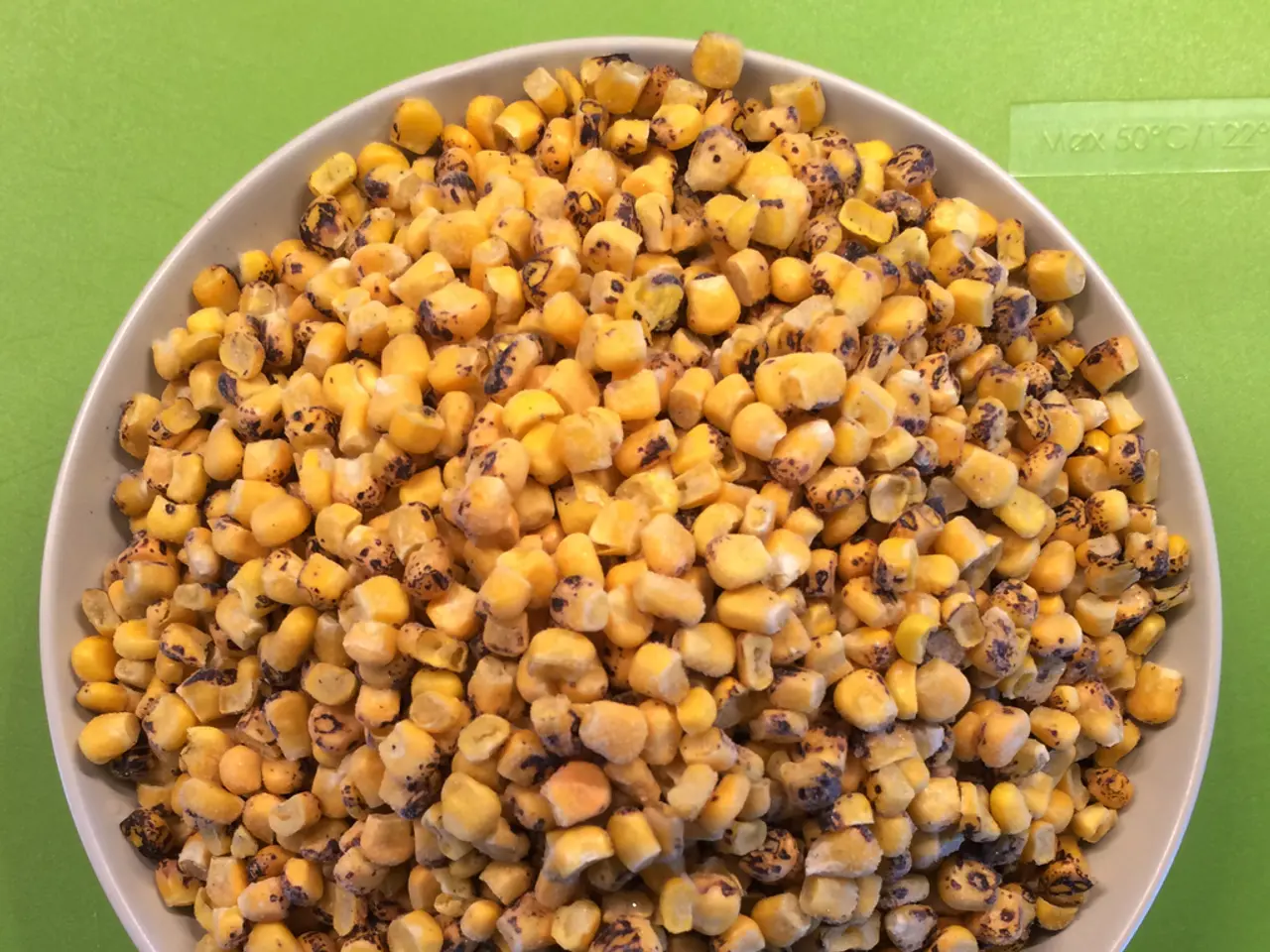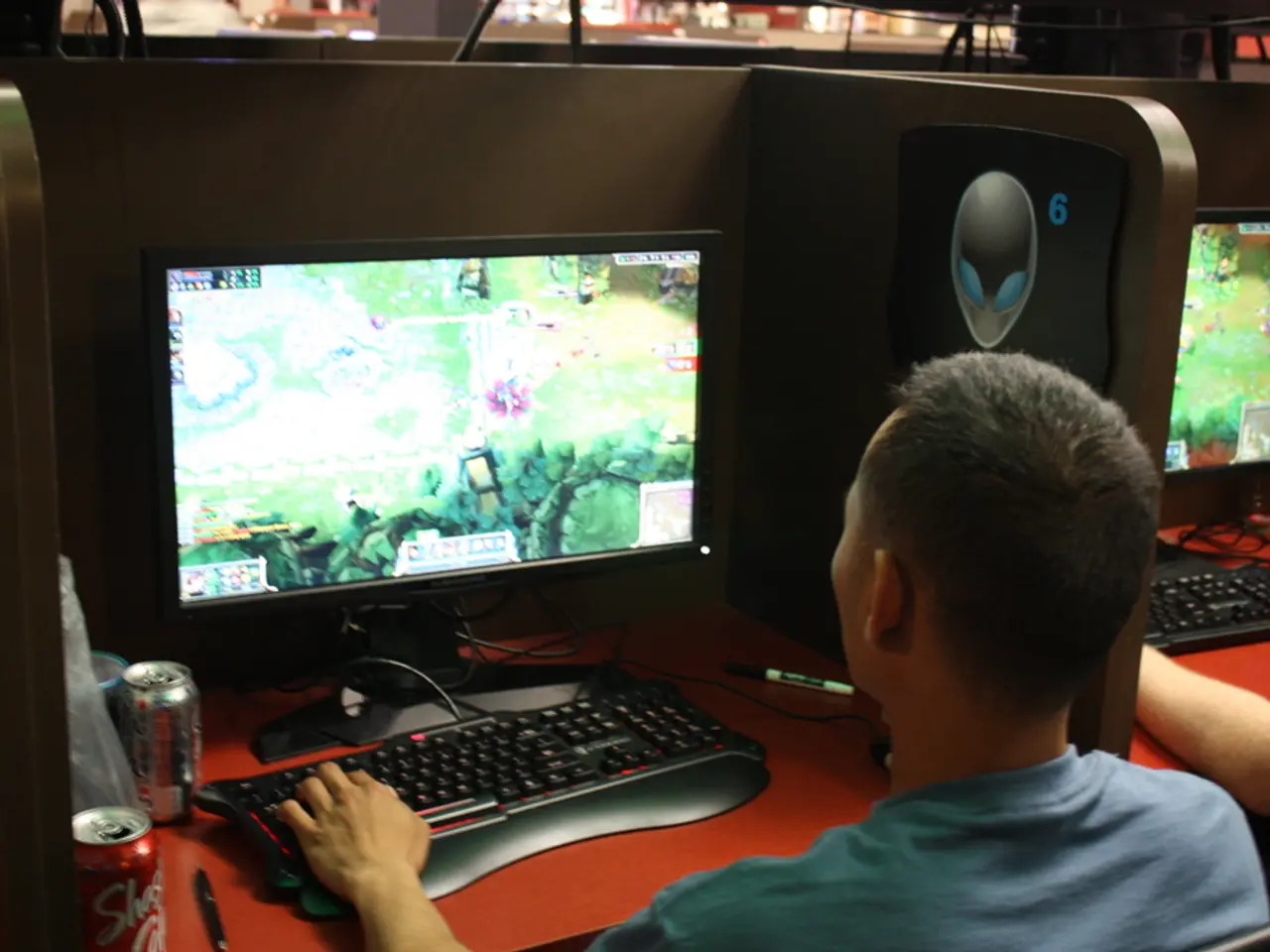safeguarding American genetically modified soybeans and corn from entering India serves our nation's economic interests, as stated by Suman Sahai.
In the ongoing trade negotiations between the United States and India, a contentious issue has arisen: the inclusion of genetically modified (GM) corn and soybean as agricultural exports from the US. This issue has significant economic and social implications for India.
Economically, the acceptance of GM crops could pose a threat to millions of smallholder Indian farmers. They would face intense competition from large-scale, heavily subsidized US producers, potentially leading to loss of income and instability in rural agricultural communities. The dairy sector, closely linked to feed crop imports like GM soy, could also suffer substantial losses, with analysts estimating potential annual damages exceeding $12 billion.
Socially, there is strong resistance from Indian farmers and rural populations who view GM crops as a threat to India’s seed sovereignty and traditional agricultural practices. Public protests and political opposition are driven by concerns over food safety, ecological impacts, cultural dietary preferences, and the possibility of contamination of non-GM seed stocks. The political leadership, including Prime Minister Modi, has emphasized protecting farmers' interests and rural livelihoods as a "red line" that India will not compromise.
Religious and cultural sensitivities further complicate the issue, particularly in sectors like dairy, where strict certification rules prohibiting imports linked to animal-derived feed are considered non-negotiable by India, reflecting deep societal values.
If India concedes to US pressure on GM crops, the potential economic impact includes increased vulnerability of small Indian farmers, potential large-scale loss in agriculture and dairy income, dependence on foreign seeds, and disruption of domestic markets. Socially, there could be erosion of traditional farming practices, public backlash, potential ecological risks, and affront to cultural values linked to food and agriculture.
Past cases of contamination have shown significant financial costs. In 2000, Aventis CropScience had to recall StarLink corn, a genetically modified corn not approved for human consumption, due to contamination in over 300 food products. The cost of recall, clean-up, and damages for Aventis was estimated to reach up to $1 billion. India, however, does not have any laws on liability and redress for contamination with genetically modified seeds. Contamination of non-GM food consignments with GM food could result in financial liability.
The plant-based food industry sources strictly non-GM soya because that's what its customers insist on, presenting a growing market for Indian non-GM soya producers. The Asia-Pacific region, including India, is expected to have the largest share of the plant-based foods market, which is projected to reach $162 billion by 2030, up from $29.4 billion in 2020. Allowing the import of genetically modified soybean from the US could lead to contamination of India's non-GM soybean, making it unacceptable to markets like Japan and South Korea.
Uncontaminated Indian soybean could face difficulty finding markets against heavily subsidized GM soybean from the US and Brazil. India is firm on not opening up the dairy sector, considering it a "red line" due to its significance as a livelihood base for rural families, particularly women.
As the trade deal negotiations between the United States and India continue, both sides are seeking flexibility. The deadline for finalizing the bilateral talks was extended from July 9 to August 1. Dr Suman Sahai, a scientist trained in genetics and the founder-chairperson of the Gene Campaign, a research and policy organization working on food and livelihoods, remains vigilant, monitoring the developments closely.
- In the realm of science, genetic modifications in crops like corn and soybean have sparked controversy, as their potential importation from the US poses threats to traditional agricultural practices in India.
- Politically, Prime Minister Modi and his administration have expressed strong opposition to the inclusion of genetically modified (GM) crops in trade negotiations, emphasizing the protection of farmers' interests and rural livelihoods.
- Economically, the plant-based food industry, projected to reach $162 billion by 2030, sources strictly non-GM soya, creating a lucrative market for Indian non-GM soya producers that could be threatened by GM soybean imports.
- In terms of finance and investing, India lacks laws on liability and redress for contamination with genetically modified seeds, potentially exposing its farmers to significant financial risks in the event of contamination.




